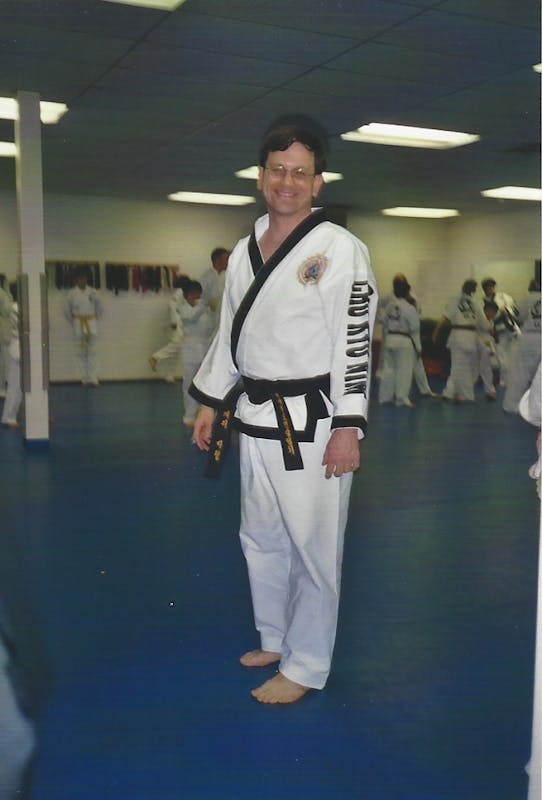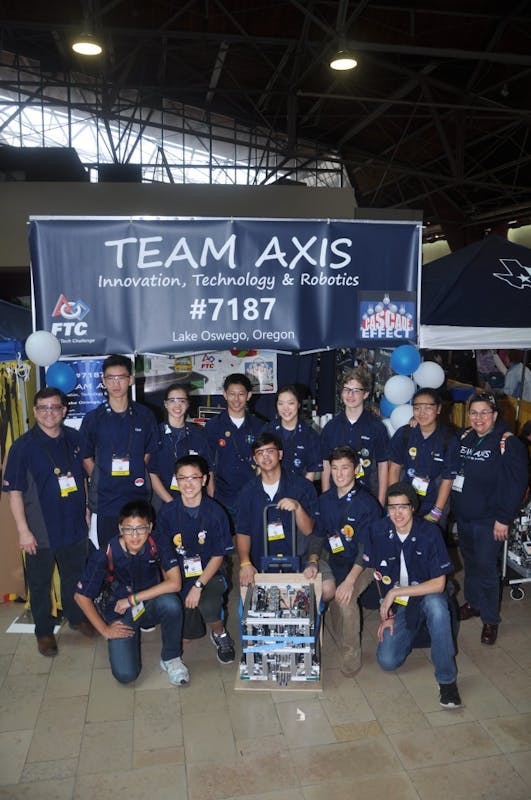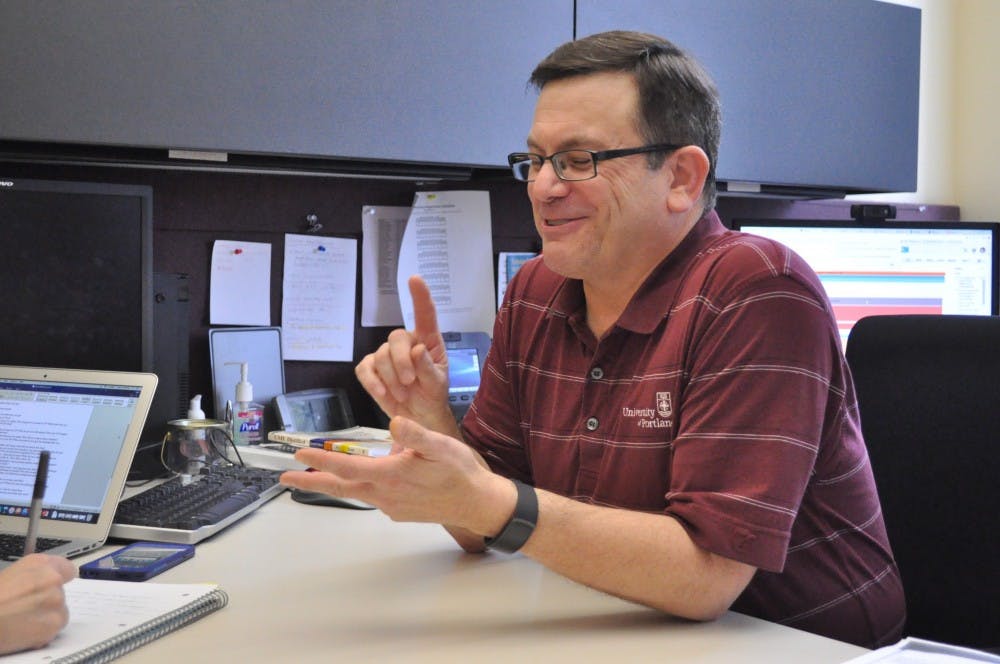The graduate students sitting in Dr. Gary Mitchell’s class have no idea. They are excited to pick Mitchell’s brain and learn from his experiences in the field of operations and technology management, but they have no idea what the man standing in front of them has been through.
Mitchell is a three-time cancer survivor, holds black belts in two types of martial arts and plays the saxophone in two bands. Business management is just the beginning. But he’ll tell you his story if you ask.
Mitchell is an Operations and Technology Management professor and has been teaching at UP since 2005.
The charismatic business professor taught full-time during his first battle with cancer and during another tumor in 2012 and melanoma in 2013. Even though cancer has been a part of Mitchell’s life since his 2007 diagnosis, his students are often unaware that their professor has battled a life-threatening illness.
Graduate student Edgar Gallos Arriaga was in disbelief when asked if he knew that Mitchell was a cancer survivor. He had no idea.
This unawareness may reflect Mitchell’s own resilient attitude. He doesn’t like to dwell on his time in a hospital bed. Instead, Mitchell would rather focus on his hobbies, such as martial arts and playing the saxophone.
Mitchell knows two types of martial arts: taekwondo, a sport martial art, and hapkido, a type of self-defense. While teaching information systems and operations management courses and pursuing a doctorate at the University of Washington, he earned his black belt and also taught martial arts to students of lower belts.

While his battle with cancer took away his ability to practice martial arts with the same intensity, it provided Mitchell an opportunity to discover a long-lost passion: playing the saxophone.
He had stopped practicing in college but was compelled to start playing again in 2012 after his second battle with cancer. Mitchell now plays in two local bands. His concert band, the Lake Oswego Millennium Concert Band, was invited to represent Oregon at the National Festival of States, a music celebration in Washington, D.C.
While Mitchell has a busy schedule, his battles with cancer have shown him what’s important in his life.
“I still work hard, I think it’s important to do a good job, there are many things that I want to do for the university and for the OTM program, but these days, nothing takes priority over the human aspects for me,” Mitchell said.
In 2008, Mitchell introduced the Operations and Technology Management (OTM) program at the University of Portland. He said it would help students gain skills needed for the rapidly changing business environment.
Mitchell knows that environment well as he worked in the field of OTM for nearly twenty years before he began his teaching career. Mitchell taught at the University of Washington from 2000 to 2005, where he also earned his doctorate, and has been teaching at the University of Portland since 2005.
As a teenager, Mitchell taught himself how to program on a calculator and knows 22 programming languages.
“If you can tell somebody how to get to your house, give them directions, then you can be a programmer because that’s basically all you’re doing is giving the computer directions,” Mitchell said.
Mitchell is encouraging toward his students as they learn to program. He knows how daunting the class may seem, but he wants his students to know that anyone can pick up programming if they try hard enough.
“I had never thought that I could program anything,” graduate student Ruth Easterling said. “I had no belief in myself that that was even possible for me, and he was so encouraging. I think that really opened up a whole world of possibilities that I really did not expect for myself.”
By encouraging his students and approaching the subject using real life applications, Mitchell transforms a challenging subject into a more approachable one.
“(Mitchell) takes away the fear factor of the topic, which is pretty daunting at times,” said Arriaga. “He says, ‘I don’t want you to memorize stuff. I want it to make sense. And if you’re working, I want it to be something that fits or makes sense for work.’”
Mitchell has worked at a number of technology development companies throughout his career, including KPMG and McKesson, and has founded and sold businesses of his own, such as SC Inventory Management, Enlore Technology Group and Retelligent.
In 1998, he put his career on the back burner to spend more time with his family. He felt as if he had missed out on his daughter Caitlin’s early years, and his son Colin was about to be born. However, he described himself as “restless” after Colin’s birth and was looking for a new project.
“I had to decide what I wanted to be when I grew up all over again,” Mitchell said.
One of his favorite aspects of consulting work was working with clients and teaching them how to improve their businesses, so teaching at a university seemed like a natural fit. He began teaching at the University of Washington in 2000.
“I absolutely loved it (teaching). It was exactly what I was looking for,” said Mitchell.
Mitchell also coaches Lake Oswego High School’s award-winning robotics team. Mitchell and his wife Veronica have coached a team since their son Colin was in middle school, and they plan to mentor other teams when Colin moves on to college. The Mitchells even hold workshops each fall to teach students how to build and program their own robots.
“Watching the kids grow and seeing them struggle with an idea or a task and then all of a sudden, you see the lightbulb go off, and you see the excitement that they have—for me, those are the best moments,” Mitchell said.

As for current projects, Mitchell is writing a textbook with a colleague at the University of Washington. They hope it will change the way faculty look at teaching project management.
Looking around his office, adorned with abstract photos he has taken himself, awards and pictures of his family, the humble, soft-spoken professor is appreciative of all the professional and personal experiences and opportunities that have crossed his path.
“My life has been a pretty good adventure,” Mitchell said.








